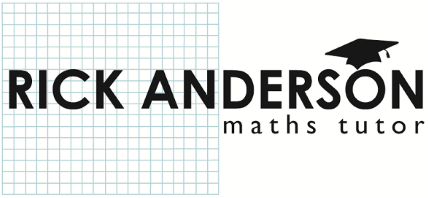The Economist  this week speculates that we are running out of combinations of letters for company names, and mentions the best and worst examples of made up names. One of the best is Google, which lead me to research its origin.
this week speculates that we are running out of combinations of letters for company names, and mentions the best and worst examples of made up names. One of the best is Google, which lead me to research its origin.
The good news is, there is a Maths angle.
The word Google comes from the googol, namely 10 to the power of 100, or 1 followed by one hundred zeros.
The founders of the company used the googol to represent the search engine idea of identifying an extremely large number of options. But the story goes that googol was
mis-spelled as google and the rest is history.
A nice GCSE question, in the new mode of “challenging”, might be:
A googol is 10 to the power 100
(a) What is a googol divided by ten to the power 98
(b) Write in standard form 15 googols
These could be seen as frightening, yet easy at the same time:
(a) answer = 10² = 100
(b) answer 1.5 x ten to the power 101
The word googol itself was invented by a nine year old (why am I not surprised?) in the 1920’s. The nephew of American mathematician Edward Kasner. To get an idea of what a googol “looks like” it is similar to the ratio of the mass of an electron to the mass of the whole visible universe.
The word google in fact was mentioned before the company invention by an unlikely author, Enid Blyton. Not in “A very large number of people go the smuggler’s top” but in the term “Google Bun” in Faraway Magic Tree. Also (much more likely) Douglas Adams used the term Googleplex in the Hitchhiker’s Guide to the Galaxy, while Google itself uses “Googleplex” as the name for it’s HQ.
 Googleplex is in fact the term for 10 to the power googol ( ten to the ten to the 100) which is a very large number indeed, perhaps to infinity and beyond. The mind boogles. I mean boggols. I mean boggles. in “Back to the Future 3″ the Doc says about future wife Clara ” She’s one in a billion. One in a Googleplex!”
Googleplex is in fact the term for 10 to the power googol ( ten to the ten to the 100) which is a very large number indeed, perhaps to infinity and beyond. The mind boogles. I mean boggols. I mean boggles. in “Back to the Future 3″ the Doc says about future wife Clara ” She’s one in a billion. One in a Googleplex!”
The word googol surfaced again when it was the £1 million question in 2001 in Who Wants to Be a Millionaire?, the one where Charles Ingram was revealed to have used an accomplice.
Google (the word) is often in the news. It was the subject of an imaginary merger of the future with Amazon and subsequent war with Microsoft in (the Epic 2014 Googlezon wars).
It has officially become a verb (to Google, to search). Ironically Google the company doesn’t like this use, because it has come to mean “to search the whole web”, not just using their search engine, although most people do actually use Google as their primary search tool.
Google has been translated for instance into Chinese

After a financial reorganisation, Google the company name, has technically become “Alphabet” (a combination of word search and alpha-bet, the best algorithm choices). Personally I don’t think “Alphabet” will stick – the word will never catch on!
Finally, the Economist rated Google one of the best company names (becoming a verb clinched it). The worst? A large consultancy expensively renamed itself “Monday”, a name judged so bad that it did not last to the Friday, when it was taken over.

But did you know there’s math in Alphabet too – per the internet article on the stock buyback:
The biggest news to come out of the third-quarter earnings from Google’s Alphabet, which were announced on Thursday, was the company’s first shareholder buyback. Alphabet’s board (same as Google’s) authorized a repurchase of its Class C shares. (Co-founders Larry Page and Sergey Brin hold most of the controlling B shares.)
The exact number of the share repurchase was funky: $5,099,019,513.59
It’s a math joke. There are 26 letters in the alphabet; 5.09901951359 is the square root of 26 an alert reader reminds us. A funnier way to consider it: Alphabet’s gross revenue in the period was $18.7 billion; the square of 5,099,019,513.59 is expressed as 2.6 times 10 to the power of 19, or some such.
Google has long had a habit of these geeky jokes. Seems the name change hasn’t really changed anything.
Thanks David I am always suspicious of share buy backs ..there is a firm you and I know for whom it does not seem to have done much for!